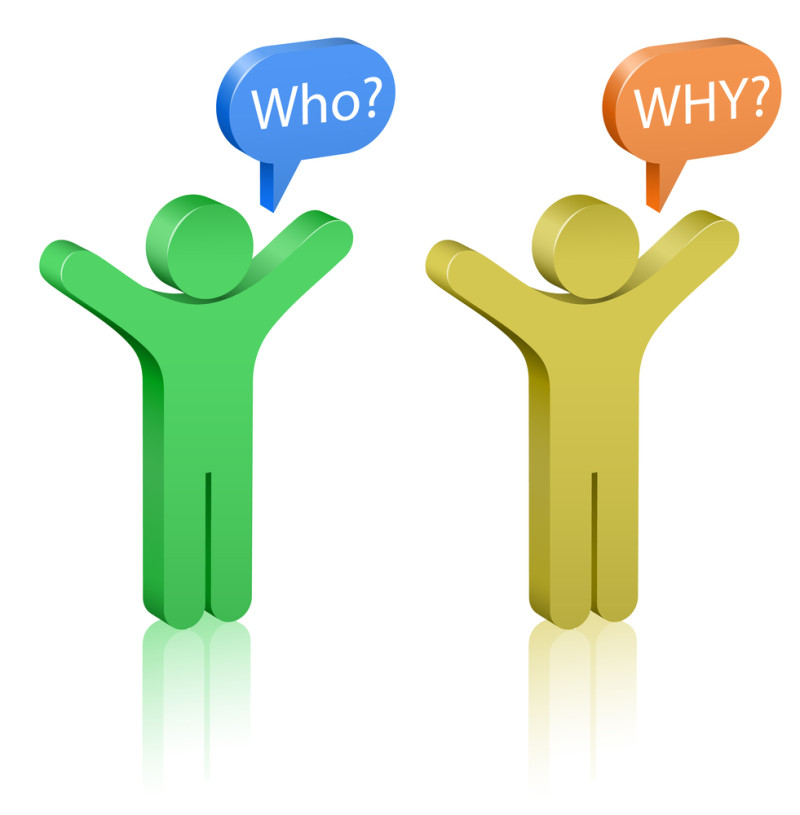How many friends do you have? I mean really close friends?
My guess is any of us would name relatively few people you can consider in that category. If it wasn’t for social media, how many people can you recall their birthdays if asked?
Social media gives the impression you can have thousands of friends.
It’s lying.
If you think you are close friends with all of the 600 people you are connected with on Facebook or you are truly engaged with more than a small fraction of the 2,000 you are “following” on Twitter, you have a serious delusional issue.
Furthermore, if you are following 10,000 people on Twitter in order to get 10,000 people to follow you, those 10,000 people are not following you any more than you are following all 10,000.
It is a physical impossibility to follow more than a couple hundred people effectively.
Some have attempted to grade social media-use based on the ratio of how many people are following you to how many you follow. It can be depressing if your self-image is wrapped up in assuming thousands of people are actually paying attention and they are really not.
If you have 10,000 people who have clicked “like” on your author Facebook site, but every time you post something you get three comments or shares, then you do not have 10,000 people following you…or what you are posting is boring. Over time, you will know if you have a audience or not by their responsiveness to your posts.
Here is a suggestion:
Twitter – if you are following thousands, delete half of them (those you don’t know personally) and see how much your follower numbers drop off. Honestly, it would be better to have 300 committed followers than 3,000 uncommitted names on a list. Keep deleting half of those you are following until you are down to people you really care what they say. If you follow someone only because they follow you, it is an uncommitted relationship and none of us need more of those.
They don’t “count” for your social media platform anyway. The purpose of an effective author social media platform is when you finally have a book to announce there is a recognizable increase in sales because you told your followers about it.
Facebook – if you have a personal page, manage it closely and “unfollow” people that are not in your inner circle of friends. You can still be friends, but you don’t need to know what everyone in world had for lunch. On a public figure page, if you have a healthy following, then please, post interesting stuff that connects with people and builds their commitment to you. Again, we don’t care what you had for lunch.
There are billions (that’s right, with a “b”) of users for each of these social media, but an average user is not connected to very many people overall. Currently, the average number of Facebook friends and Twitter followers per user is just a few hundred.
So, get real with social media. It is about quality and commitment of followers, not numbers. Yes, publishers and agents care about numbers, but we also know that there are techniques to puff up the numbers without any sort of commitment. Publishers and agents want numbers and proven effective engagement.
Numbers + commitment = effective platform.
If you don’t think commitment counts, only numbers, no matter how you got them, well, Emperor, that’s a nice new set of clothes you have on.



 The Truth About Criticism
The Truth About Criticism
Dan,
You always make me smile.
Effective engagement? Up to now I thought we were supposed to be building up the numbers. So how do agents and publishers determine effective engagement?
Thanks!
Effective engagement is revealed when you ask your followers to do something (read something, buy something, come hear you speak, tell others about it) and a high percentage do it. It is built over a long period of time.
Agents look for what publishers want and publishers want authors who will do the heavy lifting of marketing their book.
Writing a book is never the first thing you do.
Thanks for explaining.
Dan, I agree that your personal friends should be those you interact with regularly. But why can I only be professional and a public figure on FB? My professional (public figure) account – where I only post professional things of value to others – is Twitter.
You can do whatever you want, just don’t mix personal and professional…unless you are Taylor Swift, in which case we really want to know what you had for lunch.
Even if you cut those who are following you in half, it is still impossible to read everything that 1000 people write. There just isn’t enough time for that, let alone comment. Of course I prefer people to be engaged…but it seems that you are lucky these days to get a like…and there doesn’t seem to be any rhyme or reason for it. Many great points here Dan, and of course anyone who writes wants people to actually read what they are putting out there. But it is a long and arduous process to develop those committed followers. And because of the parameters set down by publishing (understandably of course) it encourages this inauthentic pattern of following. The Lord is teaching me to let go of the numbers and trust that those who need to read what we write – will…..and the rest will come in time if that is His plan. It has been a difficult lesson, but one that I am willingly embracing. 🙂
Dan, I love your posts. Point well taken this morning. Thanks for the (literal) wake up call!
I’m thinking about what you said. Your words make sense. I find it challenging on Facebook to truly engage because of Facebook’s algorithms. With my author page, it doesn’t get much exposure. I’ve been studying what on my personal and my author pages gets the most feedback (likes and comments). It’s always tricky to build on those consistently.
Is it possible that, even if we cut half our followers, we still won’t get much exposure if our Facebook posts don’t make it onto our followers’ walls?
Does this all make sense, or am I just rambling?
I’m just trying to figure this out. 🙂
Dan, this all goes back to the chicken and egg problem of how do you build a genuine following when people have no particular reason to begin following an unpublished author.
If agents and publishers are repeatedly saying they want to see a large electronic following (social media, blogs, and web-site traffic), how can a new author or even a mid-range author afford to cull the herd when it’s the head of cattle and not how much milk they produce that is constantly stressed? You only know if they’re Holsteins, Jerseys, or not producing at all when you put the pail in place and pump, but you only get the pail if someone thinks your herd is large enough.
Dan, what do you think about Quora.com? This is a website where people ask and answer questions. As a writer, I have been working on building a following for my writing there. It is not “social media” really. Kind of a cross between a blog platform and Wikipedia.
Has the publishing world noticed Quora.com as a place to see platform, yet?
Dan,
I enjoyed your post. Great points.
Like several others here, your posts make me smile, I love your posts. I often read them. I rarely have time to comment.
I realized this morning that it is that elusive “author’s voice” that I enjoy.
Keep them coming.
Just cutting followers isn’t really going to work either. We’re still dealing with algorithms. If we’ve built it person-by-person, even if they don’t engage on every post, those that get higher “likes” will actually show up in those friends that are less active with us. Then it becomes exponential. The best way to cull friend/followers is to take a look at building with real people in the first place and then use the unfollow sites for unfollowing those who friend and then immediately unfollow you when you friend them. Try sites like who.unfollowed.me for twitter. I do it as often as I remember. Once a week is a good rule. On Facebook, most authors have had to go to profiles. Personal profiles have much more oomph than fan pages since Facebook forced us to pay for interaction. Facebook refuses to allow pages any real connection with fan-friends. One way I’ve found to help is to use my fan page for Facebook parties instead of the event created to market the party. Made a huge difference (during the week of the party because of the level of attendees and their interaction.) But it’s very hard to keep that up on a daily basis and write.
Some of what you’ve shared here really helps me, Angela. You addressed some of the questions I’ve been pondering. Thanks!
Dan, thank you for this post. This was just what I needed to hear today. I feel most agents fail to clarify the reality of those 10,000 followers and pressure indie writers to maintain this unrealistic expectation. Thank you, thank you! You make me a believer again.
Ha – the truth at last!
And the truth will always set us free.